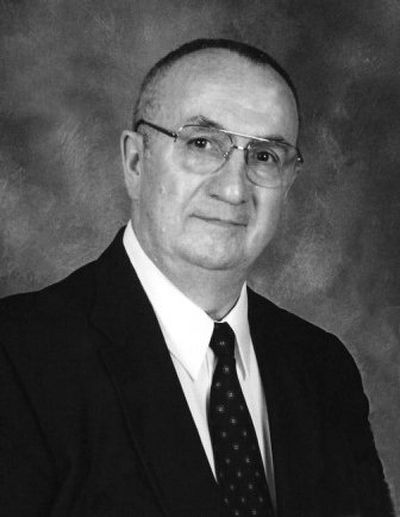Late vet honored at D.C. memorial

During his year in Vietnam, Don Royal Hampton flew more missions than any pilot before him.
He averaged more than two a day in a cargo plane, which he would use to bring supplies into, and take the wounded out of, Tan Son Nhut Air Base.
Those same planes were often used for another purpose: spraying a chemical defoliant that came to be known as Agent Orange on the Vietnamese jungle. Hampton didn’t fly the spraying missions for Operation Ranch Hand, but he shared the same buildings with those crews and sometimes even ate his lunch sitting on the large barrels of chemicals that were stored outside the offices, said his wife, Patricia Hampton.
Decades later, exposure to Agent Orange may have led to his death, she said. His service was recently honored with 76 others at the Vietnam Veterans Memorial in Washington, D.C.
Don Hampton loved to fly. He started in B-47 bombers in the 1950s, but in Vietnam he flew C-123 transports. In the year he spent there, he received the Distinguished Flying Cross and other medals and flew a total of 852 missions – a record when he left in 1966, although it was eventually passed by later pilots.
Don Hampton came home to Patricia, whom he’d married a month before shipping off to Vietnam in June 1965, and they spent two years in Germany before he served the rest of his 22-year Air Force career in the United States.
Years later, after he had established a new career with the investment firm of Piper, Jaffray and Hopwood, Don Hampton developed a skin condition known as chloracne. He assumed it was from the Agent Orange, but he didn’t seek treatment from the Veterans Administration.
“He knew he was exposed (to Agent Orange), but he felt there were other men more deserving and he wasn’t going to file a claim for chloracne,” Patricia Hampton said.
Don Hampton retired from Piper Jaffray in 1997. In March 2004, he was diagnosed with a particularly virulent form of kidney cancer that spread quickly through his body. When traditional drug therapies “did absolutely no good,” Patricia Hampton said, he had some brief success with experimental drugs; but within 20 months, he died in hospice care.
Before Don Hampton died in October 2005, his wife read a story in The Spokesman-Review about the Vietnam Veterans Memorial Fund’s annual In Memory Day ceremony at the Wall. It honors veterans and some civilians who served in Vietnam and died later from the effects of their service in the war. She clipped the story out and put it in a drawer. Last spring, she read another story about the ceremony and printed out an application from the Internet.
Many of the veterans memorialized in the Vietnam Veterans Memorial Foundation’s ceremony each year are Agent Orange victims. But whether the toxic defoliant can be conclusively linked to kidney cancer remains in dispute. That type of cancer falls between presumptive disorders – those that the federal government believes are strongly linked to Agent Orange – and those that have been ruled out. The government lists the link to kidney cancer as “insufficient evidence.”
But six different civilian doctors he saw during his treatment said they considered Agent Orange the likely cause of his cancer, Patricia Hampton said, and she believes he gave his life for his country.
She filled out the application and sent the foundation Don’s records, being careful to make clear that kidney cancer is not a presumptive disorder.
After reviewing the records, the foundation had no qualms about including him with 76 other Vietnam veterans this month when it held its ceremony.
Holly Rotondi, program director for the memorial fund, said the foundation looks at a veteran’s service and VA records when considering applications for the ceremony. For veterans who, like Hampton, had a fatal disease that might be linked to Agent Orange but whose condition couldn’t be proved definitively, the foundation relies heavily on the family’s narrative of the veteran’s service and disease.
“The point of the program is to provide some healing to the family, and if they make a strong case, we go with that,” Rotondi said. “They made a strong case.”
In April, Patricia Hampton, their daughter and granddaughter attended the ceremony. When Don’s name was read, his 8-year-old granddaughter Anna Nowland said he’d served his country for 22 years, adding “I love him and miss him very much.”
Don Hampton wasn’t big on ceremony, his wife of 40 years said recently. He skipped the big celebration when he retired from the military. Having his family say a few words about him would have meant more than the pomp and ceremony that goes with In Memory Day.
But the recognition was important to Patricia and the rest of his family.
“I just wanted him to be recognized for the service he did for his country,” she said. “When my husband came back from Vietnam, there was nothing. He just came home.”